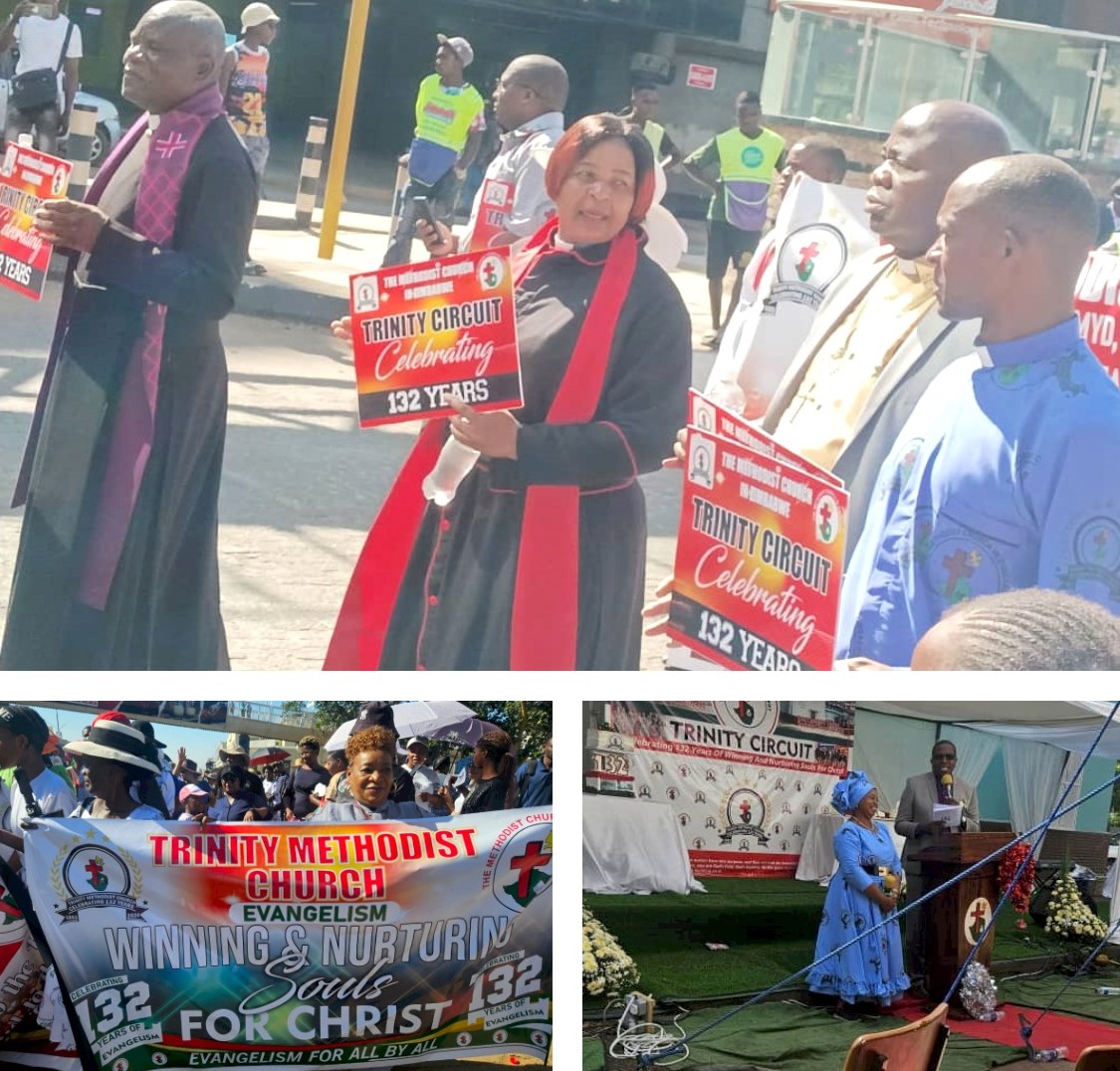Faith in Action: Uniting for Climate Resilience
The Methodist Development and Relief Agency (MeDRA) continues to champion climate resilience by empowering faith communities to lead in climate adaptation. Inspiring initiatives demonstrate how faith and action can work in tandem to build a sustainable future.
On 2 April 2025, 162 Ruwadzano-Manyano women from The Methodist Church in Zimbabwe (MCZ), Chitungwiza East Circuit, gathered to deepen their understanding of climate adaptation strategies. Through powerful dialogues, these women of faith emerged as strong advocates for climate resilience, ensuring that gender equality and safeguarding remain at the heart of their mission. Their commitment showcases the vital role faith-based groups play in tackling environmental challenges while nurturing inclusive community leadership.
Further advancing this momentum, on 23 April 2025, MeDRA, in partnership with ACT Alliance, hosted a multi-faith intergenerational climate dialogue at Methodist Trinity Hall, Harare. The meeting brought together over 30 faith leaders and youth from various Christian denominations, including the Methodist Church in Zimbabwe and African Traditional Religions (ATR). This diverse group explored strategies to bridge the knowledge gap between generations, empower youth leadership, and strengthen faith-led climate advocacy.
Speakers emphasised that faith leaders possess unique moral authority to inspire climate action. They can mobilise communities through sermons, workshops, and faith-based initiatives such as community gardens, water conservation projects, and disaster preparedness programs. Wellington Madumira from Climate Action Network Zimbabwe highlighted the importance of framing climate adaptation as a moral responsibility, while MeDRA’s Programs Manager, Tariro Washaya, stressed the urgent need to adapt agriculture and water management practices in response to Zimbabwe’s changing climate.
Youth voices like Simbarashe Sinamani, outgoing MCZ Youth President, and Davidzo Chibi called for bold awareness campaigns and practical initiatives like household water harvesting. Tanatswa Hokonya urged faith communities to leverage technology and social media to widen youth engagement in climate solutions.
The dialogue concluded with actionable solutions, including:
- Investing in climate-resilient infrastructure.
- Promoting rainwater harvesting and efficient water use.
- Developing inclusive funding models for climate projects.
- Protecting natural ecosystems.
- Fostering collaboration across sectors and faiths.
- Enhancing youth participation and leadership.
As Rev. Chiweshe from the Baptist Church noted, climate change and faith are deeply interconnected—religious teachings on stewardship of the Earth can inspire hope, resilience, and collective responsibility.
Faith leaders remain essential allies in climate action, not only in guiding their congregations but in shaping national policies and building resilient, eco-conscious communities. Together, through faith, advocacy, and unity, we can protect our planet and ensure a sustainable future for generations to come.
MeDRA, the humanitarian and development arm of the Methodist Church in Zimbabwe, remains committed to supporting communities through climate adaptation and social justice initiatives.
More News
